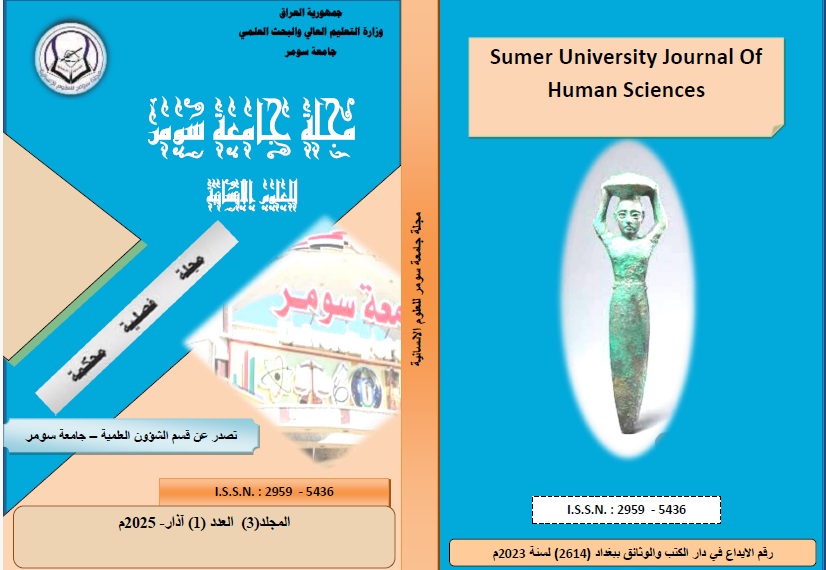The Effectiveness of a Proposed Teaching Design Based on the Ethical Analysis Approach in the Achievement of Basic Education College Students in the Cognitive Psychology Course
Keywords:
فاعلية ، تصميم تدريسي، مدخل التحليل الاخلاقيAbstract
The current research aims to identify:
-1- Building a proposed teaching design according to the ethical analysis approach.
2- Knowing the effectiveness of the proposed teaching design according to the ethical analysis approach in the achievement of students in basic education colleges in the cognitive psychology course.
To achieve the research objectives, the researcher built a teaching design according to the strategies of the ethical analysis approach and included a set of strategies. For the purpose of identifying the effectiveness of the teaching design, the researcher formulated the null hypotheses.
“There is no statistically significant difference at the significance level (0.05) between the average achievement scores of the experimental group students who will study using the proposed teaching design according to the ethical analysis approach and the average achievement scores of the control group students who will study according to the normal method in the achievement test for the cognitive psychology course.”
The researcher relied on two approaches, a descriptive approach to build the proposed teaching design, and an experimental approach with partial control, consisting of two experimental and control groups to identify the effectiveness of the proposed teaching design, with a post-test. The researcher chose Sumer University / College of Basic Education / Department of First Grade Teachers, the third stage, and two sections (A) were chosen, the experimental group, and section (B) the control group.
The researcher relied on two approaches, a descriptive approach to build the proposed teaching design, and an experimental approach with partial control, consisting of two experimental and control groups to identify the effectiveness of the proposed teaching design, with a post-test. The researcher chose Sumer University / College of Basic Education / Department of First Grade Teachers, the third stage, and two sections (A) were chosen, the experimental group, and section (B) the control group.
The researcher taught the experimental and control research groups. After completing the experiment, the researcher applied the research tool, collected data, and analyzed it statistically using the Statistical Package for the Social Sciences (SPSS).
The search results showed the following:
There is a statistically significant difference at the significance level (0.05) between the average scores of the experimental group students who studied according to the proposed teaching design according to the ethical analysis approach and the average scores of the control group students who studied according to the normal method in the post-achievement test, and in favor of the experimental group.


